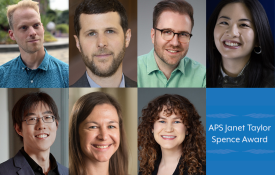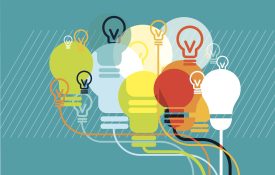-

We All Love to Be Loved, But Women May Experience Love More Frequently than Men
Conventional wisdom holds that men and women approach romance differently. But new research suggests that love is important for well-being regardless of gender—and the differences that do exist may hint at the evolutionary basis of love.
-

Seven Early-Career Researchers Honored With 2024 APS Janet Taylor Spence Award
The seven recipients are honored for cutting-edge research on topics ranging from self-regulation to collective emotions to multicultural experiences.
-

Community Engagement in Psychological Research
Podcast: As experts in the field, Patricia Rodriguez Espinosa and Luz Garcini share their ideas and best practices about how to center community voices in psychological research.
-

When Things Don’t Go According to Plan
Methodologists have embraced preregistration as a way to prevent questionable research practices and add transparency to scientific studies. But many researchers end up deviating from those preregistered plans, and those deviations aren’t reported systematically, if at all.
-
Finding It Tough to Motivate Yourself? These Strategies Can Help.
Many people think that motivation is the key to changing habits — and that you either have it or you don’t. But motivation is not a psychological trait or personality characteristic. It’s something you can cultivate. “It’s about setting yourself up for success,” said behavioral scientist Katy Milkman, a professor at the Wharton School of the University of Pennsylvania and author of the book “How to Change: The Science of Getting from Where You Are to Where You Want to Be.” “Create an environment that’s conducive to making the choices you want to make.
-

Being a Team Player: Opportunities and Challenges in the Era of Collaborative Science
The growing number of collaborative science teams changes the landscape of science and technology; whereas small teams disrupt science and technology by creating novel systems and ideas, large teams build on existing knowledge systems. Both will be crucial for moving science forward.

